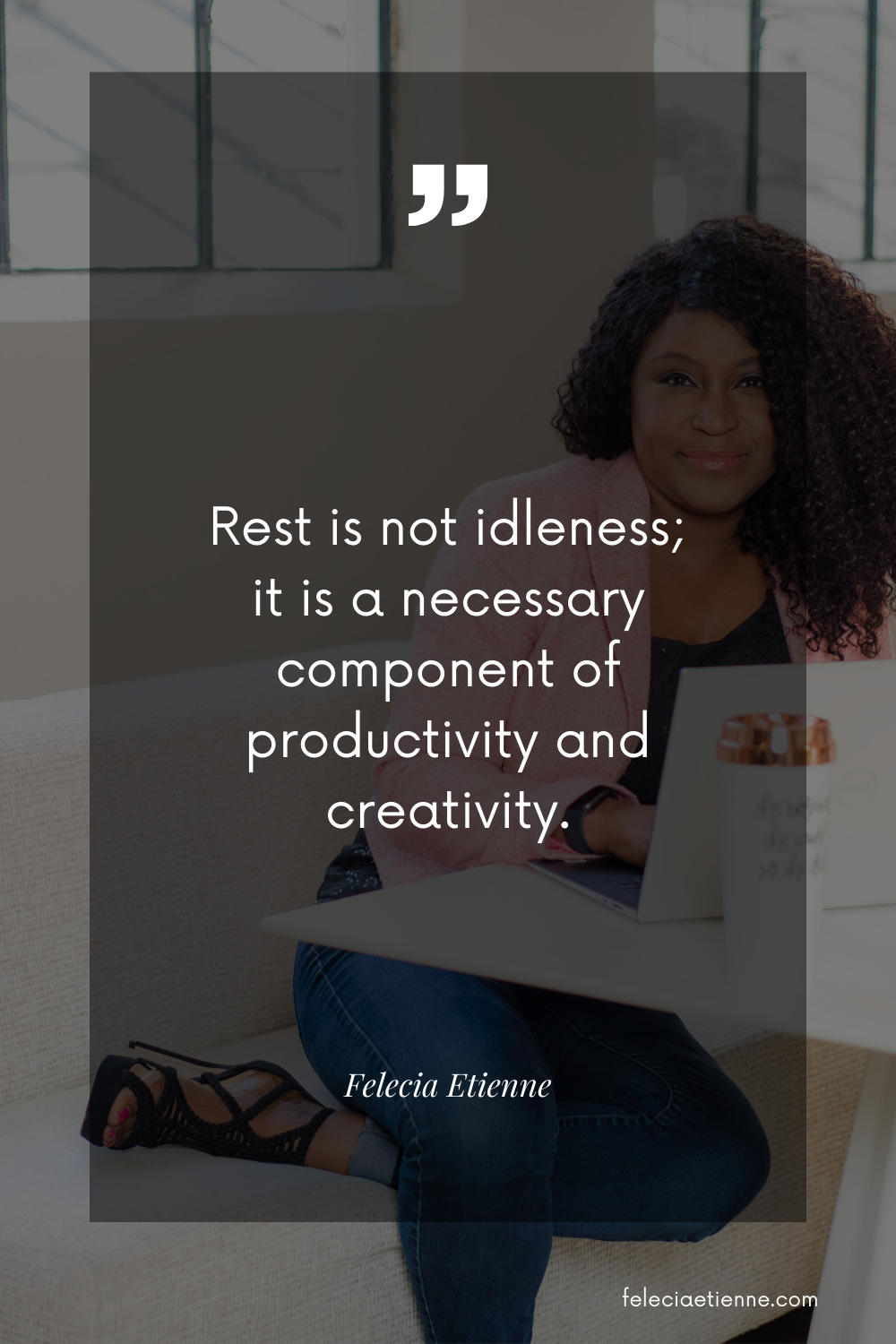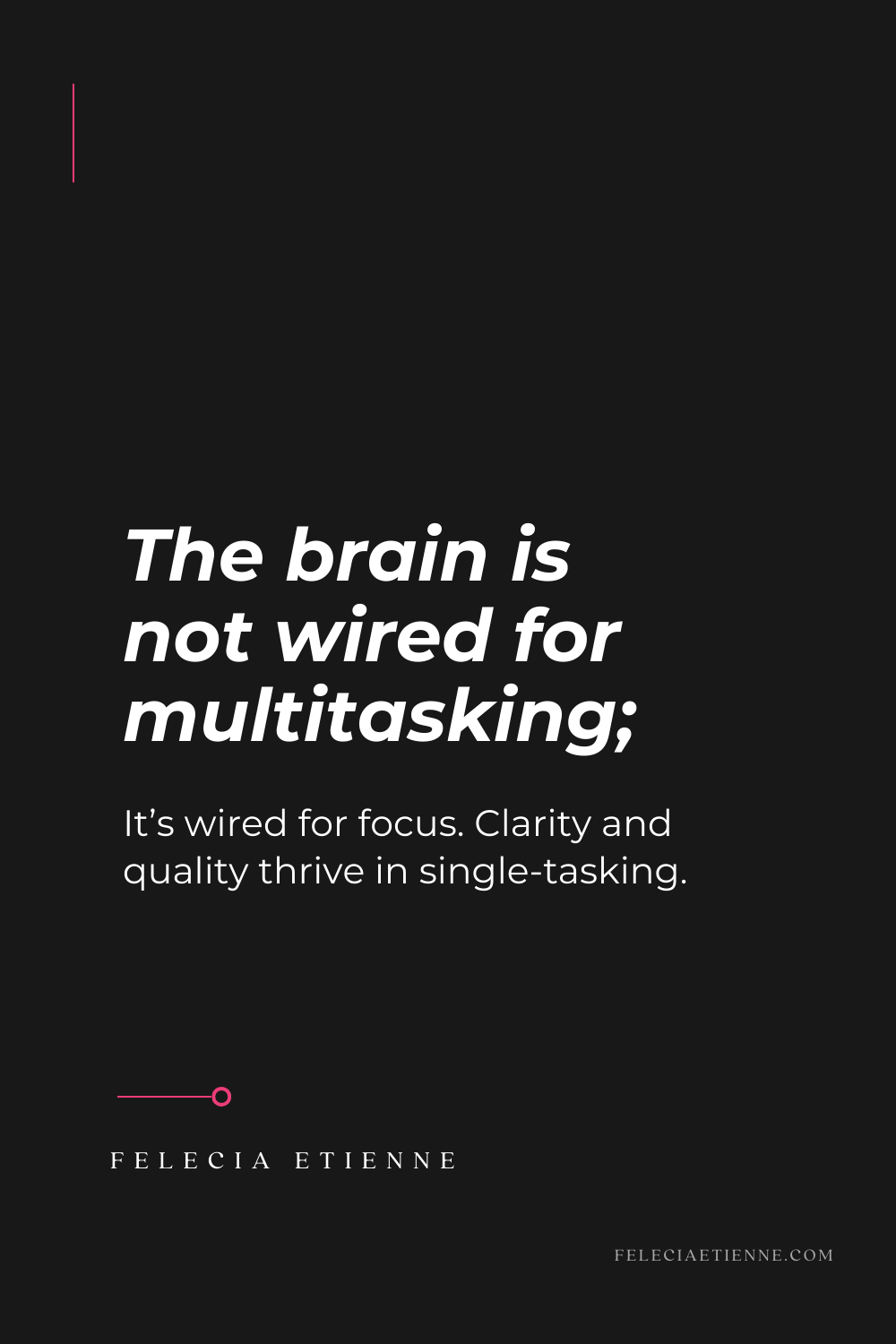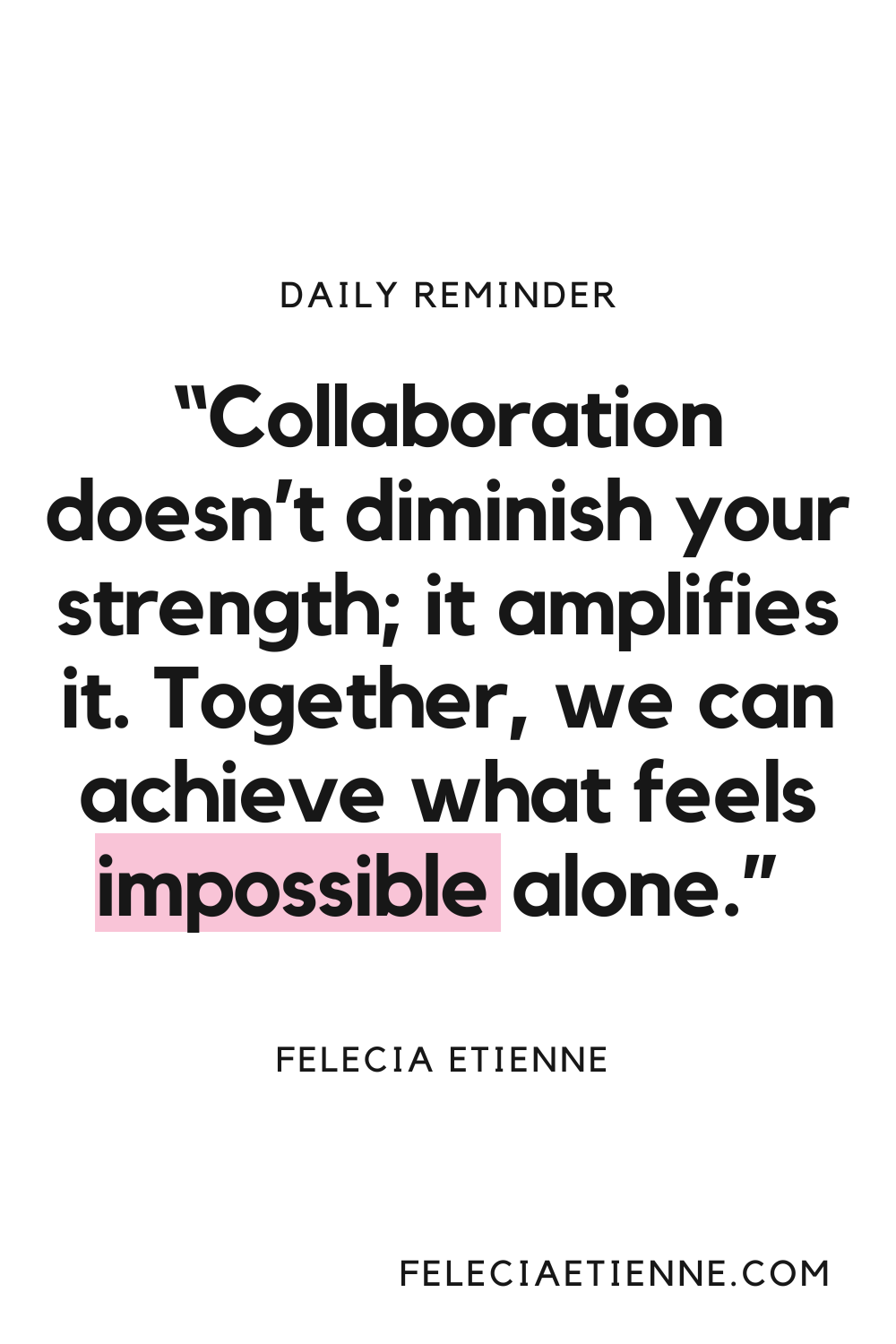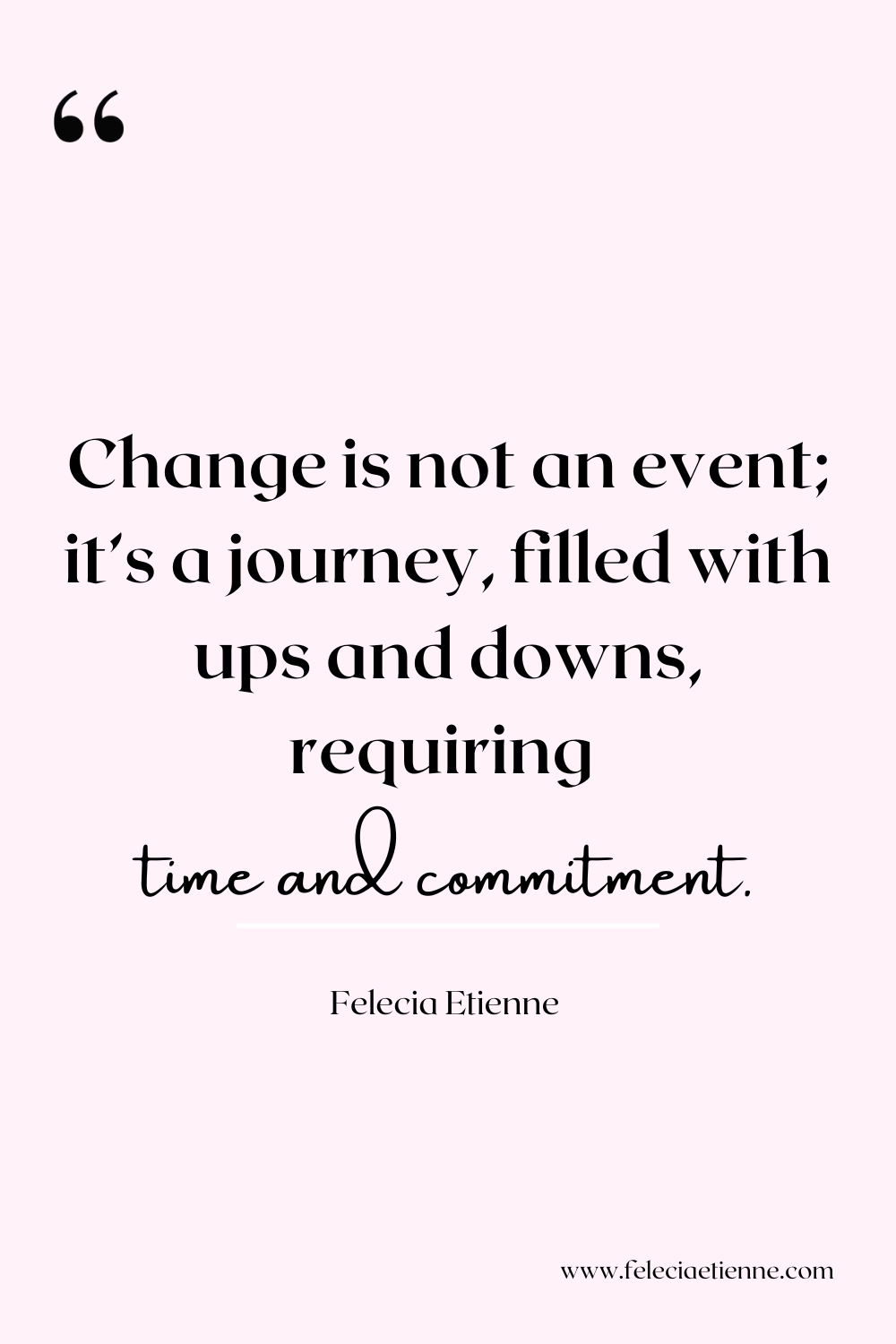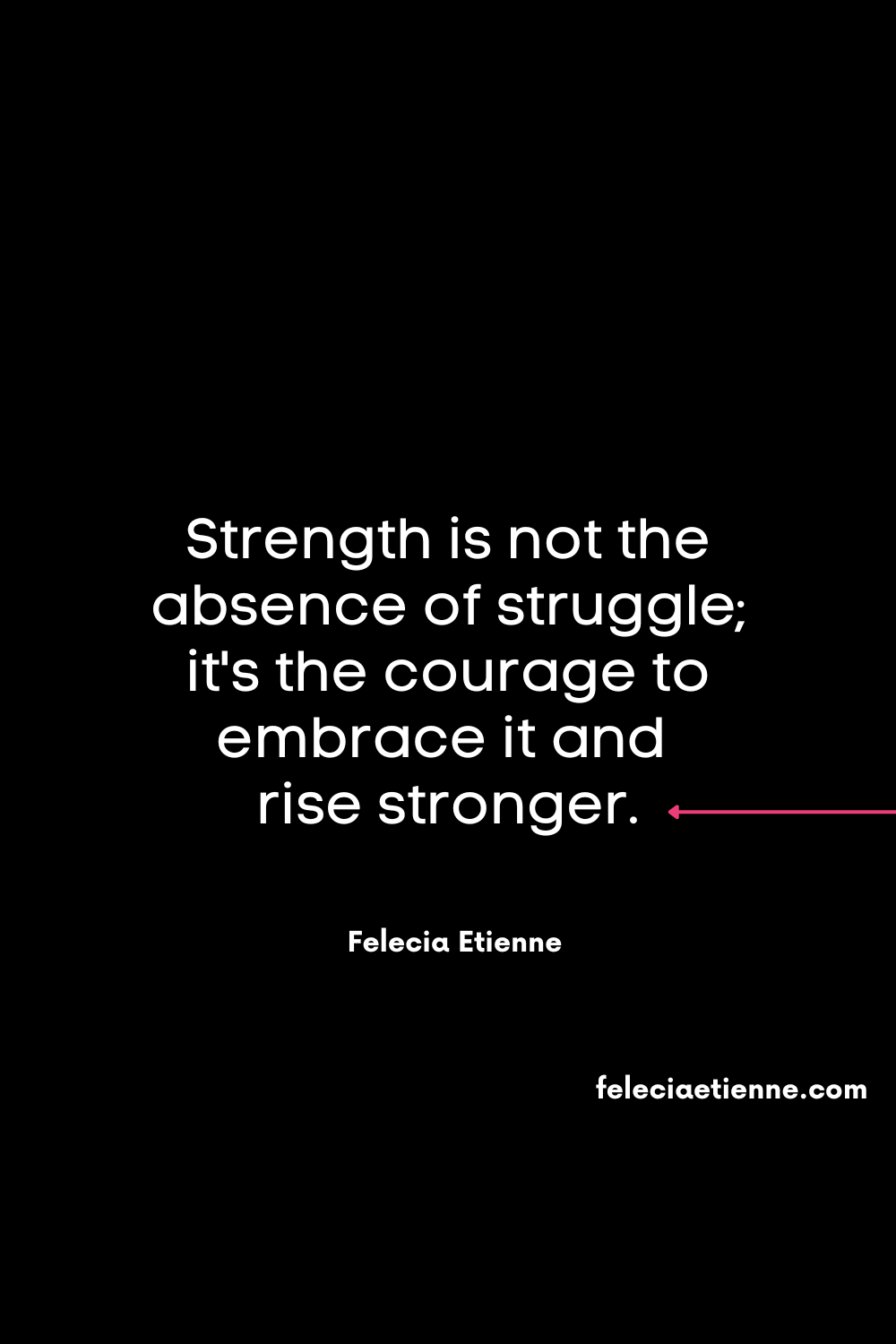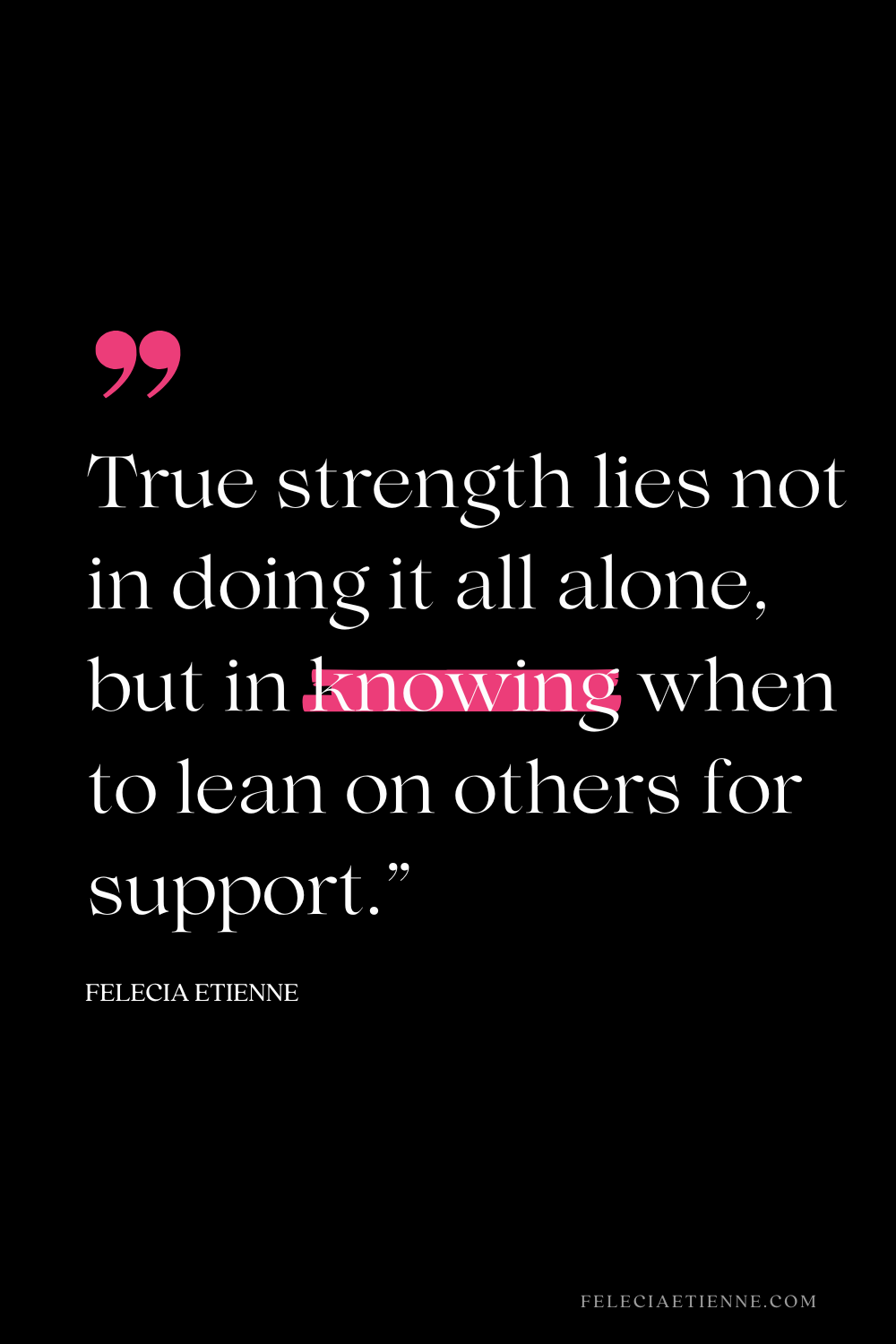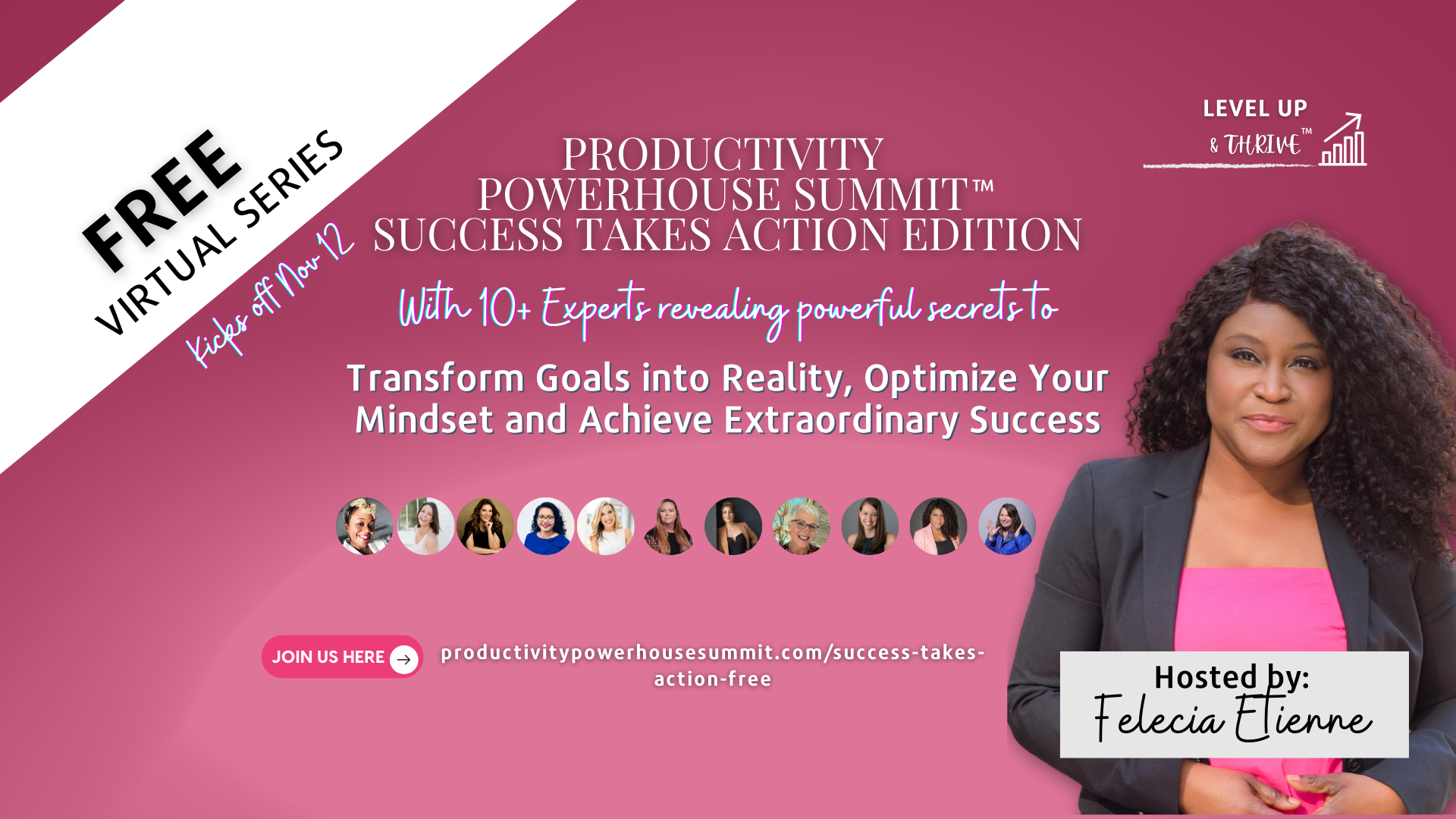11 Toxic Myths Sabotaging Your Performance and Productivity
Have you ever felt like you’re running a marathon with no finish line in sight?
You push yourself to the limit, juggling deadlines and responsibilities, but every time you reach one milestone, two more pop up, demanding your attention. Deep down, you know you need to slow down—but that thought sends a shiver down your spine. What if taking a break makes you less competitive? What if you fall behind?
As a high achiever, I’ve stood exactly where you are—exhausted, emotionally drained, and caught in the relentless cycle of overwork. Many of us silently grapple with the fear of vulnerability, afraid to admit we feel overwhelmed or inadequate, even as we present a polished facade to the world. You might be thinking, “I can’t afford to slow down. If I do, I’ll let everyone down, including myself.”
But let's pause and reflect:
What does this relentless pursuit of productivity cost you? Your health? Your relationships? Your peace of mind?
Why This Matters
The truth is, the pressure to constantly perform can lead to burnout and emotional fatigue. It’s not just about how much you achieve; it’s about the quality of your experiences and your mental well-being. As a high achiever, you might often feel like you're juggling a thousand balls in the air—one misstep, and everything could come crashing down. But here’s the irony: when we refuse to step back and assess the chaos, we sacrifice not only our health but also the very essence of what we aim to accomplish.
According to a study published in Psychological Science, individuals who practiced gratitude daily reported a 25% increase in life satisfaction and resilience. But let’s face it—how many of us have time for gratitude when we’re drowning in our to-do lists?
11 Toxic Myths Blocking Your Performance and Productivity
Myth 1: “Busyness Equals Productivity”
How many times have you heard, "Stay busy, keep hustling, and you'll get ahead?" It’s almost a badge of honor in today’s fast-paced world. But here’s the thing: Being busy doesn’t necessarily mean you're being productive. In fact, busyness is often a distraction from what truly matters—and research backs this up.
The Reality:
Studies show that constantly jumping from task to task—also known as multitasking—decreases overall productivity by up to 40% . The brain simply isn’t wired to focus on more than one high-level task at a time, meaning that all those hours spent on scattered, fragmented activities might be holding you back more than helping you.
What You Should Do Instead:
Rather than striving to stay busy, focus on being intentional with your time. High achievers succeed not because they work harder or fill every hour with tasks, but because they prioritize the right tasks. This is where time-blocking and prioritization come into play. Start by identifying your highest-impact activities—the things that truly move the needle—and dedicate focused time to them.
Tip:
Block out 2–3 hours a day for deep, uninterrupted work on the most important tasks. You’ll find that this focus leads to higher productivity and less mental fatigue.
Myth 2: “You Must Always Be Available”
In our hyper-connected world, the expectation to be available 24/7 is a common misconception. Many professionals believe that to succeed, they must respond to emails, texts, or calls instantly—regardless of their personal time.
The Reality:
Studies indicate that this constant availability can lead to burnout and decreased job satisfaction. A survey by Gallup found that employees who frequently check work messages during off-hours experience higher levels of stress and are more likely to feel disengaged from their jobs.
“Your time is your life, and you owe it to yourself to protect it fiercely.”
What You Should Do Instead:
Set boundaries around your availability. This could mean designating specific times to check emails or setting your phone to "Do Not Disturb" during family time or personal moments. Communicate these boundaries with your colleagues and clients, reinforcing that you're committed to your work but also to your well-being.
Tip:
Try the “Email Free Friday” challenge! Dedicate one day a week to not checking or responding to emails. You’ll be amazed at how much more focused and present you can be in your work and personal life.
Myth 3: “Taking Breaks is a Waste of Time”
Many high achievers fall into the trap of thinking that taking breaks will hinder their productivity. The misconception is that constant work leads to greater success, equating busyness with effectiveness.
The Reality:
Research consistently shows that taking regular breaks can boost productivity and creativity. A study published in the journal Cognition found that short breaks during long tasks help maintain focus and enhance performance.
RELATED ARTICLE: Top 9 obstacles killing your productivity | How to overcome it and THRIVE
“Rest is not idleness; it is a necessary component of productivity and creativity.”
What You Should Do Instead:
Embrace the power of the pause. Schedule regular breaks throughout your day—whether it’s a five-minute stretch, a quick walk, or even a short meditation session. These moments away from your desk can refresh your mind and help you return to your tasks with renewed energy.
Tip:
Implement the Pomodoro Technique: work for 25 minutes, then take a 5-minute break. After four Pomodoros, take a longer break of 15–30 minutes. This structured approach can help you maximize your focus while ensuring you recharge regularly.
Myth 4: “Multitasking Makes You More Efficient”
In today’s fast-paced world, many people believe that multitasking is the key to accomplishing more in less time. The myth suggests that juggling multiple tasks simultaneously can boost overall productivity.
The Reality:
Contrary to this belief, research shows that multitasking can actually decrease productivity and lead to increased errors. A study published in the journal Psychological Bulletin revealed that multitasking can reduce productivity by as much as 40%, as the brain struggles to switch between tasks efficiently.
“The brain is not wired for multitasking; it’s wired for focus. Clarity and quality thrive in single-tasking.”
What You Should Do Instead:
Focus on single-tasking to maximize your efficiency. Prioritize your tasks and tackle them one at a time. This approach allows you to dedicate your full attention to each task, resulting in higher quality work and greater satisfaction.
Tip:
Use time blocking in your schedule. Allocate specific blocks of time for each task and commit to focusing solely on that task during that time frame. This will help you cultivate a more productive workflow.
Myth 5: “I Can Just Willpower My Way to Change”
Many of us cling to the belief that if we truly desire something, we can simply power through it with enough willpower. It’s a common mantra: “If I really want to change, why can’t I just do it?”
The Reality:
Here’s the kicker: while willpower is certainly important, it’s rarely the whole story. Research from the American Psychological Association shows that making lasting changes often requires a blend of self-awareness, emotional resilience, and sometimes, a little support from others. Just like trying to lift weights without the proper form can lead to injury, pushing through change without a solid strategy can leave you feeling frustrated and exhausted.
“Willpower is like a muscle; it can be strengthened, but it can also be depleted. Sustainable change requires more than just grit—it requires guidance.”
Imagine setting a new goal—maybe it’s to exercise more regularly or eat healthier. You’re fired up and ready to take on the world! But then, life throws a curveball. A hectic day at work, family obligations, or the gravitational pull of old habits can make it feel impossible to maintain that momentum. Many of my high-achieving clients have found themselves in this exact situation, pushing through the struggle, only to realize later that it didn’t have to be this hard.
What You Should Do Instead:
Rather than relying solely on willpower, consider embracing a more holistic approach to change. Recognizing that achieving your goals involves more than sheer determination can be liberating. Surround yourself with a supportive network, seek accountability, and develop strategies that resonate with your objectives.
Having a guide during this process can transform your journey. Many high achievers initially believed they could navigate their challenges alone, only to discover that having someone to help navigate the intricacies of change made all the difference.
Tip:
Take a moment to reflect on your current habits and what influences them. Journaling can be a powerful tool to unpack your thoughts and emotions, providing the clarity you need to make informed choices moving forward.
Myth 6: “I Have to Do It All Alone”
In a world that often celebrates independence, many high achievers grapple with the belief that they should navigate their challenges solo. This notion can be especially strong for those who are used to excelling in their careers or managing multiple responsibilities. It’s all too easy to think that asking for help is a sign of weakness.
The Reality:
The truth, however, is that collaboration can be a powerful catalyst for success. Research from the Journal of Social and Personal Relationships shows that seeking support not only enhances resilience but fosters stronger connections. You’re not alone in feeling overwhelmed by your responsibilities—many high achievers have been there too.
“Collaboration doesn’t diminish your strength; it amplifies it. Together, we can achieve what feels impossible alone.”
Consider this: many of my clients initially believed they had to tackle their goals and challenges on their own. They thrived on independence and often felt that reaching out for help was a sign of failure. Yet, after working through their initial hesitation, they discovered that sharing their experiences and challenges brought fresh insights and encouragement. The realization hit hard—they didn’t need to carry the weight alone.
Instead of seeing collaboration as a burden, they began to view it as a strategic advantage. They learned that engaging with others—be it a mentor, a peer, or a supportive group—can offer invaluable perspectives and create a sense of accountability. It was a game changer.
What You Should Do Instead:
Embrace the idea that seeking support is not only okay but beneficial. Begin by sharing your goals and challenges with someone you trust. You might find that opening up can lighten your load and foster a sense of community that enhances your journey.
Tip:
Start small—reach out to a friend or colleague about your current aspirations. You’ll likely find that they’ve faced similar challenges and can offer insights that make a real difference.
RELATED ARTICLE: 12 Ways A High-Performance Coach Can Make You More Successful
Myth 7: “I Should Have It All Figured Out by Now”
How many times have you caught yourself thinking, “By this age, I should know exactly what I want”? It’s a common belief that as we grow older, we should have our lives mapped out, complete with a detailed plan for every aspect of our future.
The Reality:
Here’s the truth: life is not a straight path, and figuring things out is often a lifelong process. Research suggests that many people experience multiple career changes and shifts in life goals throughout their lives. Each phase brings new challenges, opportunities, and lessons that shape who we are and what we desire. Embracing uncertainty can be the key to unlocking your potential and allowing yourself the grace to evolve.
“Growth is not linear; it’s a beautiful mess of twists and turns, and it’s okay to not have it all figured out.”
Consider the stories of high achievers who once felt immense pressure to have every detail of their lives planned out. I’ve noticed that some of my clients struggle with heavy judgment, guilt, and shame when they don’t have everything mapped out. But when they learn to release those burdens, they open themselves up to the lessons life offers, finding joy and fulfillment in the journey.
Life’s unpredictability can be a source of strength rather than a weakness. It’s in the exploration and trial and error that we often discover our true passions and purpose.
What You Should Do Instead:
Instead of pressuring yourself to have everything figured out, try to embrace the journey. Allow yourself to explore new interests, take risks, and learn from each experience. Reflecting on your path and what you’ve learned can be incredibly empowering.
Recognizing the value of collaboration can shift your perspective on what’s possible. A supportive guide can help you navigate this complex terrain, easing the burden of figuring it all out alone.
Tip:
Take time to journal about your current feelings around your goals and uncertainties. Write down moments when you felt proud of taking a risk or trying something new. This reflection can help you see how far you’ve come and open up possibilities for the future.
Myth 8: “Change Happens Overnight”
Many people believe that change is a quick fix. It’s tempting to think that if we commit to a new goal or lifestyle, we’ll see instant results. After all, we live in a world that often glorifies overnight success and quick transformations.
The Reality:
Here’s the reality check: true, lasting change takes time. Psychological research consistently shows that significant transformation is a gradual process, often requiring patience and consistent effort. Just as a caterpillar doesn’t turn into a butterfly in a day, the journey of personal growth involves many stages, each with its own set of challenges and rewards.
“Change is not an event; it’s a journey, filled with ups and downs, requiring time and commitment.”
Think about your own experiences with change. Perhaps you set a goal to exercise more or adopt a healthier diet. At first, the excitement fuels your motivation. But as the days go by, it’s easy to feel disheartened when the results don’t come as quickly as you hoped. I’ve seen clients who initially felt discouraged because they expected to see immediate outcomes. However, when they shifted their mindset to focus on progress rather than perfection, they began to appreciate the small victories along the way.
Understanding that change is a journey can help you celebrate those incremental steps forward. Each moment of progress—no matter how small—adds up and contributes to the bigger picture of your transformation.
What You Should Do Instead:
Instead of expecting immediate results, practice patience and focus on the journey. Embrace the process of change, and allow yourself to learn and grow from each experience. Building resilience in the face of challenges will empower you to stay committed to your goals.
In this journey, having a supportive presence can make a significant difference. When you realize you don’t have to navigate the complexities of change alone, it can be liberating.
Tip:
Keep a journal to track your progress. Write down your thoughts and feelings about the changes you’re making, as well as the small victories you achieve along the way. This practice can help you recognize your growth and motivate you to keep moving forward.
Myth 9: “If I’m Struggling, I Must Be Weak”
Many high achievers grapple with the belief that struggling with challenges is a sign of personal weakness. The internal dialogue often goes something like, “If I was truly capable, I wouldn’t be facing this issue.” This mindset can create a cycle of shame that makes it even harder to seek help or acknowledge difficulties.
The Reality:
Struggling is a universal human experience, and it doesn’t diminish your worth or capabilities. Research in psychology indicates that embracing vulnerability can actually foster resilience and growth. In fact, acknowledging your struggles can lead to profound breakthroughs and deeper connections with others.
“Strength is not the absence of struggle; it’s the courage to embrace it and rise stronger.”
Consider the stories of many high-achieving individuals who have felt overwhelmed but feared expressing it. They often carry the weight of perfectionism, believing they must always project strength and confidence. However, when they finally allow themselves to be vulnerable, they discover a powerful release and a deeper connection to their true selves.
What You Should Do Instead:
Instead of viewing your struggles as weaknesses, reframe them as opportunities for growth. Recognizing that everyone faces challenges can help you feel more empowered. Share your experiences with trusted friends, family, or even supportive communities. You may find that others are experiencing similar challenges and can offer valuable insights.
Many of my clients have found that embracing their vulnerabilities has not only strengthened their relationships but also provided a foundation for lasting change.
Tip:
Reflect on a challenge you’re currently facing. Instead of hiding it, consider journaling about it or discussing it with someone you trust. Opening up can provide clarity and inspire new solutions that you might not have seen on your own.
RELATED ARTICLE: Turning Challenges Into Growth Opportunities: Unlocking the Power of Mental Toughness
Myth 10: “I Should Be Able to Figure It Out on My Own”
It’s common for high achievers to feel they must navigate life’s challenges independently. This belief often manifests as a strong sense of self-reliance, leading to the internal monologue: “If I can’t solve this myself, what does that say about me?” This mindset can leave you feeling isolated and overwhelmed.
The Reality:
While independence is a valuable trait, believing you must handle everything on your own can hinder your growth. Studies show that collaboration and support are crucial for innovation and personal development. Just as a great athlete relies on a coach for guidance and strategy, we all benefit from external perspectives and encouragement.
“True strength lies not in doing it all alone, but in knowing when to lean on others for support.”
Many of my clients initially come to me believing they need to have all the answers. They often carry the burden of high expectations and pressure to succeed alone. Yet, when they finally recognize the value of collaboration and support, they discover a lighter, more effective approach to achieving their goals.
What You Should Do Instead:
Embrace the idea that seeking help is not a sign of weakness, but rather a smart strategy for success. Engage with mentors, join supportive communities, or explore group coaching opportunities. The insights and experiences of others can provide you with new tools and perspectives that enrich your journey.
Reflect on your current challenges—are there areas where you’re hesitating to ask for help? Opening up to trusted individuals can lead to fresh ideas and the reassurance that you’re not alone in your journey.
Tip:
Consider reaching out to a colleague or friend this week to discuss a challenge you're facing. Sharing your thoughts can spark new ideas and remind you of the strength found in community.
Myth 10: “Change Is Too Hard and Time-Consuming”
Many of us view change as a daunting and lengthy process. The thought of overhauling our routines or habits can feel overwhelming, leading to the belief: “It’s just too hard; I don’t have the time for this.” This mindset often keeps us stuck in our current ways, even if they aren’t serving us.
The Reality:
While change can certainly require effort and dedication, it doesn’t always have to be a long or arduous journey. Research indicates that small, consistent changes often yield the most significant results. In fact, the concept of micro-habits—tiny, incremental adjustments—can make transformation more approachable and less intimidating.
RELATED ARTICLE: 23 Small Habits to change your life for the better (so you can achieve your goals with confidence and grace.)
“The journey of change doesn’t have to be a marathon; even small steps can lead to remarkable destinations.”
Some of my clients initially feel that major life shifts require monumental effort and a hefty time investment. However, once they begin to implement small, manageable changes, they often find themselves enjoying the process and seeing results more quickly than expected. The key lies in breaking down goals into bite-sized pieces and celebrating each win along the way.
What You Should Do Instead:
Shift your perspective on change. Instead of viewing it as a massive undertaking, focus on what small steps you can take today. Start with one change that feels manageable—whether it’s adjusting your morning routine or dedicating a few minutes to a new hobby.
The power of transformation lies in the little things. By prioritizing consistent action over perfection, you’ll create momentum that can lead to substantial change over time.
Tip:
Create a list of small changes you’d like to implement. Choose one to focus on this week, and track your progress. Celebrate your success, no matter how small!
Myth 12: “I Shouldn’t Need Help; I Should Be Able to Handle It Myself”
There’s a common belief that asking for help is a sign of weakness. Many high achievers hold onto the notion that they should be able to manage everything independently. This belief can lead to feelings of isolation and burnout, making it hard to reach out when support is truly needed.
The Reality:
Seeking help is not a sign of inadequacy; it’s a sign of strength and self-awareness. Research shows that collaboration and support from others can enhance personal growth and lead to better outcomes. By sharing your challenges and seeking assistance, you can access new perspectives and insights that you might not have considered alone.
“Asking for help is not a failure; it’s an invitation for growth and collaboration.”
I’ve seen this pattern in many of my clients. Initially, they struggle with the idea of leaning on others, believing that they should be able to navigate their challenges solo. However, once they open up to the possibility of support, they often find that sharing their journey not only lightens their load but also enriches their experience.
What You Should Do Instead:
Embrace the idea that you don’t have to go it alone. Whether it’s friends, family, or a community, allow yourself to tap into the strength of a support network. Remember that everyone needs help at times, and reaching out can create powerful connections and insights.
Tip:
Reflect on an area in your life where you feel overwhelmed. Consider who in your circle you could reach out to for support. A simple conversation could lead to valuable advice or encouragement.
You might argue, “These lies, aka myths, don’t apply to me.”“These lies, aka myths, don’t apply to me.”,
When you push through exhaustion, you’re not just delaying burnout; you’re inviting it in. Ignoring the signs only leads to greater breakdowns—physically, mentally, and emotionally. Those relentless demands don’t just wear you down; they erode your ability to lead, connect, and inspire.
Practical Applications
So, what’s the answer? Here are five practical strategies to help you shift from a cycle of chaos to a state of clarity:
Prioritize Mental Fitness Breaks
Ever feel like your brain’s about to short-circuit from too much stress? That’s because it is. Powering through without taking breaks can actually hurt your productivity. According to research from Stanford University, short, intentional breaks can help reset your mind and improve focus, creativity, and problem-solving abilities. One simple trick? Try the Pomodoro Technique, where you work for 25 minutes and then take a 5-minute break. These brief pauses can do wonders for your mental clarity. As the saying goes, "Clarity isn’t found in chaos; it’s created by pausing long enough to see through the storm."
RELATED ARTICLE: Elevate Your Game: Why Mental Fitness is Key for Unstoppable Success
Practice Mindfulness
You don’t need to be a monk on a mountaintop to benefit from mindfulness! It can be as simple as closing your eyes and taking a few deep breaths. Research from Harvard Medical School shows that practicing even a couple of minutes of mindfulness can significantly reduce stress, improve emotional regulation, and boost cognitive flexibility. Just imagine how much more grounded you’ll feel when you take a pause to reconnect with yourself, instead of rushing through life on autopilot.
Set Intentional Goals
Ever feel overwhelmed by the never-ending to-do list? You’re not alone. The trick is to set intentional goals. Rather than being buried under 15 things to do in a day, pick 2-3 key goals that align with your bigger vision. This is backed by research from MIT that suggests focusing on fewer but more meaningful tasks can actually enhance long-term productivity and well-being. When you know exactly what you’re working toward, you’ll feel more fulfilled and less like you’re just spinning your wheels.
Embrace the Power of 'No'
It’s easy to fall into the trap of saying “yes” to everything. But here’s the truth: saying “no” can be one of the most powerful acts of self-care. Studies from UC Berkeley show that people who are comfortable setting boundaries are more likely to avoid burnout and sustain high levels of performance. Protecting your energy and time allows you to focus on what really matters. So, start small—turn down one thing that doesn’t align with your goals, and notice how much more space you create in your life.
Reflect and Assess
Ever feel like you’re constantly moving, but not making real progress? Taking time at the end of each week to reflect is a game-changer. Research from the Journal of Applied Psychology highlights how reflecting on your progress helps identify areas for growth while celebrating accomplishments. It’s a simple practice—grab a notebook, and jot down what went well and where you can improve. Doing this consistently keeps you grounded, helps you prioritize effectively, and reminds you of the bigger picture.
These strategies aren’t just quick fixes—they’re rooted in scientific research and designed to help you stay at your peak without sacrificing your well-being. By incorporating intentional pauses, mindfulness, and goal-setting, you’re building a sustainable path to success that aligns with your values and enhances your productivity. Let’s face it: the real power is in finding balance between action and rest, between doing and being.
Implementing these strategies creates a ripple effect that extends beyond your work life. Imagine nurturing deeper connections with your loved ones because you’re not perpetually buried in work. Picture the satisfaction of leading from a place of clarity rather than exhaustion. Remember, “The strength of your mind doesn’t just impact your to-do list—it transforms the way you live your entire life.”
Reflection Questions
When was the last time you took a moment to breathe and reset during your busy day?
What toxic belief about productivity are you ready to challenge today?
How can you create intentional space in your schedule for what truly matters to you?
Sources:
Harvard Medical School research on mindfulness: link
Stanford research on productivity breaks: link
UC Berkeley study on boundaries and burnout: link
MIT research on goal setting: link
FAQ Section
1. What are the most common productivity blockers in the workplace?
You might feel like you're working hard, but somehow, you’re not getting much done. Sound familiar? Some of the biggest productivity killers include multitasking, constant distractions (hello, social media!), and the dreaded burnout. According to a study from the American Psychological Association, chronic stress at work can sap your mental energy, making it harder to focus and be productive.
To counteract this, try focusing on one task at a time and scheduling specific breaks throughout your day. Studies show that taking regular breaks can improve your productivity by up to 10% . It’s not about doing more; it’s about doing things smarter.
2. How does multitasking affect productivity?
It feels like multitasking should make you more productive, right? But here’s the kicker—according to research published by the Stanford University, multitasking actually makes you less productive. In fact, switching between tasks can reduce productivity by up to 40%! This is because your brain takes time to reorient itself each time you shift gears. Instead, try time-blocking. Set a timer for 20–30 minutes and give your full attention to one task. You'll find that you get more done in less time.
3. How can I overcome burnout and regain focus at work?
Burnout is real, and if you're feeling drained, know that you're not alone. According to the World Health Organization (WHO), burnout stems from chronic workplace stress that hasn't been managed properly. Signs include feeling mentally distant from your job, fatigue, and reduced performance. To combat this, start by making self-care a priority. Studies show that incorporating mindfulness techniques—even just 10 minutes of deep breathing or meditation—can lower stress and increase focus. It's about creating space to recharge so you can show up as your best self.
4. How do external distractions like social media affect my productivity?
We’ve all been there—one quick scroll on Instagram turns into a 30-minute rabbit hole. External distractions like social media are major productivity drains. A study by Microsoft found that after an interruption, it can take up to 25 minutes to fully regain your focus! The good news? There are tools like Focus@Will or website blockers that can help you minimize these distractions. Plus, decluttering your physical workspace can help clear your mental space too.
5. What role does goal setting play in improving productivity?
If you’ve ever felt like you’re spinning your wheels without really getting anywhere, it might be because your goals aren’t clear enough. A Harvard Business Review study found that people who set specific, challenging goals are 90% more likely to achieve them. Try using the SMART method—goals that are Specific, Measurable, Achievable, Relevant, and Time-bound. It not only helps give you direction but also creates a sense of progress, which boosts motivation.
6. How can time management strategies improve work performance?
You might think that working longer means getting more done, but it’s really about working smarter, not harder. Research from the University of California, Irvine shows that effective time management strategies, like the Pomodoro Technique (work for 25 minutes, take a 5-minute break), can significantly improve focus and productivity. Why? Because it gives your brain a chance to rest and reset. The result? More energy, better decisions, and, ultimately, more high-quality work.
Conclusion: Embrace Your Path to Growth
As we wrap up this blog, let’s take a moment to think about the myths that can weigh us down on our journeys. Breaking free from these myths isn't just brave; it's transformative. When you recognize these false beliefs, you can start to carve out a path that truly reflects who you are. Remember, real progress isn’t about chasing perfection or endlessly striving; it’s about setting meaningful goals, respecting your boundaries, and celebrating your unique strengths. Authentic leadership grows from these daily choices, allowing you to engage with purpose and authenticity.
Take Action: Unleash Your Potential
So, here’s a little challenge for you: take a moment today to reflect on which myths have been quietly influencing your personal and professional life. Pick one that resonates with you and flip it into a belief that fuels your growth and confidence. For example, instead of thinking you have to tackle everything solo, embrace the idea that asking for help can actually enhance your journey. Remember, change begins with letting go of beliefs that no longer serve you.
Ready to Elevate Your Leadership?
You already have what it takes to be an inspiring leader! Sometimes, all it takes is the right approach and a little support to unlock your full potential. If you're excited to dive deeper and lead with clarity, confidence, and success—without burning out—I’m here to help. Let’s connect and take your leadership journey to the next level together!
If you're ready to break through the toxic myths sabotaging your performance and productivity, then you need to be part of the 'Success Takes Action' edition of the Productivity Powerhouse Summit. It's 100% free, 100% virtual, and packed with pure value. Don’t miss this chance to transform the way you lead and thrive. Sign up now and start your journey toward empowered leadership!
P.S. If you're looking for deeper support as you navigate this transformative journey, here are two ways I can help:
Master Your Mindset: I specialize in helping high achievers, business owners, and professionals break into the top 1% of their field by mastering their mindset and boosting their performance. When you're ready to take your success to the next level, DM me the word "Edge," and let's start that conversation.
Free Resource for Change: Don’t let negative emotions hold you back! Grab my Self-Sabotage Solution Checklist—a free tool designed to help you identify and release the limiting beliefs that no longer serve you. Take the first step toward a more empowered you today!
Embrace this opportunity to shift from burnout to brilliance. Your path to sustainable success starts now!
Ready to achieve your dream life? I’m Felecia Etienne, your go-to Certified High-Performance Coach™ and Mental Fitness Coach. Let me take you on a transformative journey with a Complimentary Unlock Your Performance EDGE call. This isn’t just a chat—it’s your ticket to the high-performance tools and techniques I’ve shared with my coaching clients.
In this personalized call, you'll:
- Dive into your dreams and goals, tackle obstacles, and bridge the gap between where you are and where you want to be.
- Uncover and combat triggers of self-sabotage while discovering untapped strengths.
- You'll walk away with actionable strategies that deliver immediate impact
Equip yourself with the strategies, resources, and support needed to shatter obstacles, self-sabotaging, narrow the gap, and transform your ambitions into tangible achievements. Ready to escape inertia and boost your impact? Book a private and confidential session. Unlock Your Performance EDGE with Felecia. Let's unlock your potential together.
To find out more about Felecia, you can visit her website at feleciaetienne.com.
Social Media Handles:





